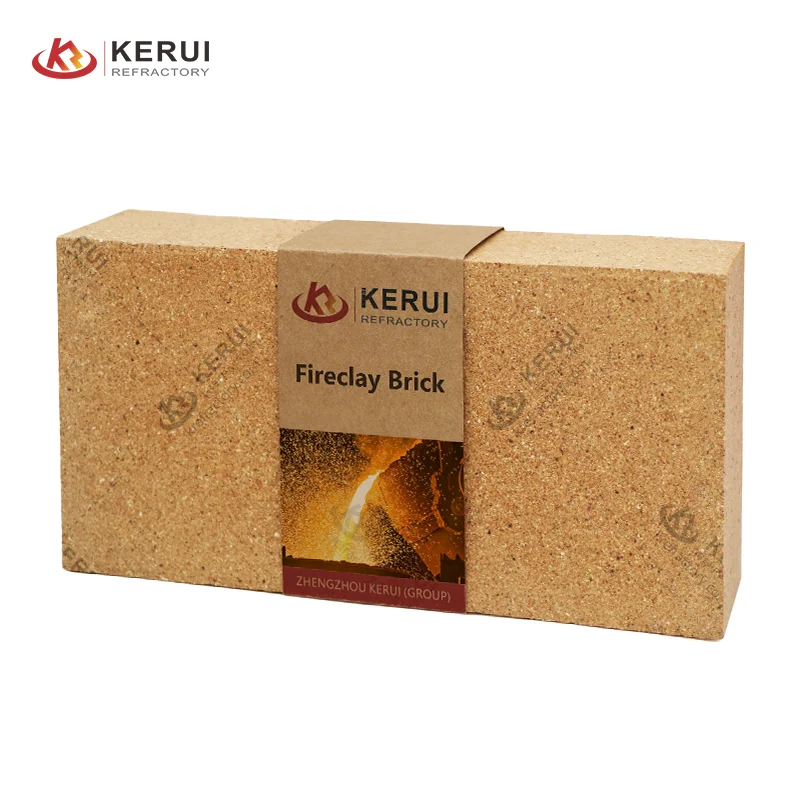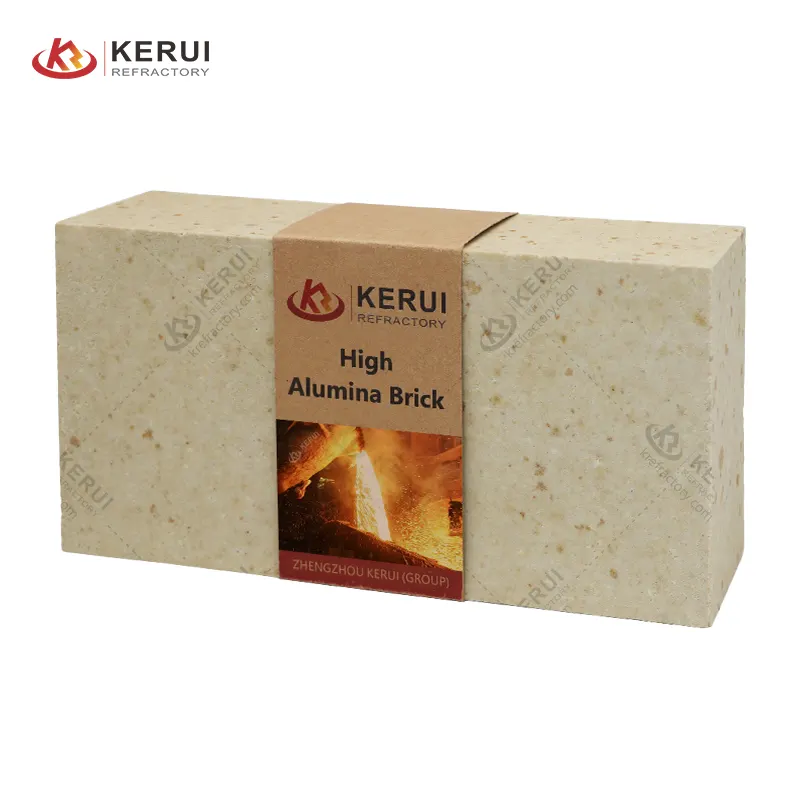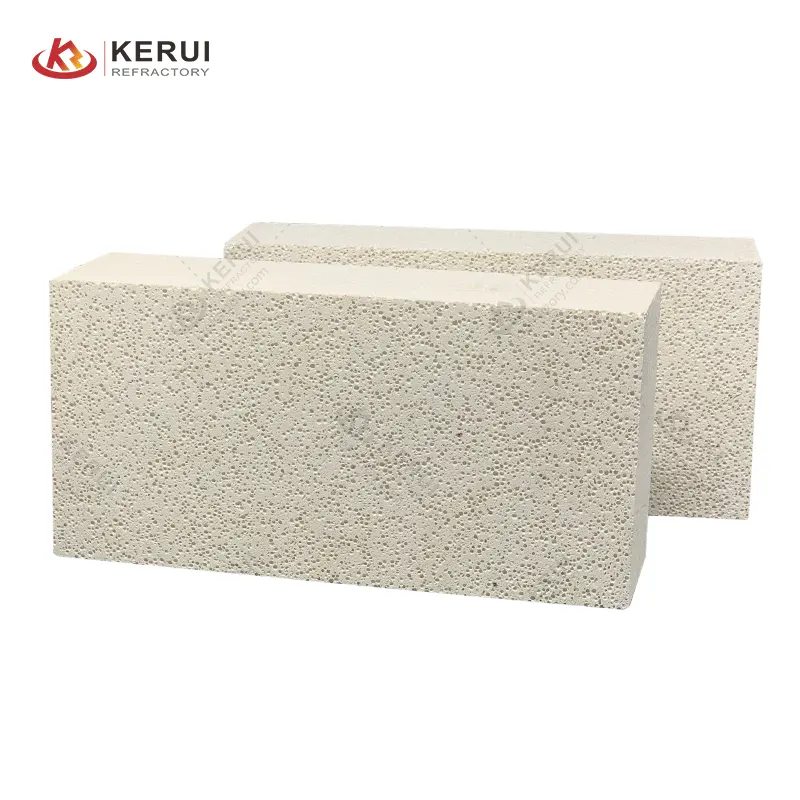Article Navigation
- Key Performance Criteria
- Material Recommendations
- Thermal Efficiency Optimization
- Installation & Maintenance
- Why Choose Kerui?
1. Key Performance Criteria
Selecting refractory bricks for pizza ovens requires balancing heat retention, durability, and safety. Critical factors include:
1.1 Temperature Resistance
- Operating Range: Pizza ovens typically operate at 400–500°C (752–932°F), with wood-fired models reaching 800°C+ (1,472°F).
- Peak Tolerance: Bricks must withstand occasional spikes up to 1,100°C (2,012°F).
1.2 Thermal Shock Resistance
- Cycling Stability: Daily heating/cooling cycles demand materials surviving 50+ thermal shocks (ΔT >500°C).
1.3 Thermal Conductivity
- Ideal Range: 0.8–1.2 W/m·K for balanced heat retention and cooking efficiency.
1.4 Safety & Compliance
- Food Safety: Non-toxic, asbestos-free materials meeting FDA 21 CFR standards.
- Low Iron Content: Prevents metallic tastes in food (Fe₂O₃ <1.5%).
| Parameter | Standard Pizza Ovens | High-End Wood-Fired Ovens |
|---|---|---|
| Max Service Temp | 800°C | 1,100°C |
| Thermal Conductivity | 0.8–1.2 W/m·K | 0.6–1.0 W/m·K |
| Al₂O₃ Content | 40–50% | 60–70% |
| Apparent Porosity | <18% | <12% |



2. Material Recommendations
2.1 Cordierite-Mullite Bricks
- Best For: Home/commercial electric/gas ovens.
- Advantages:
- Thermal shock resistance >30 cycles (ΔT 800°C → room temp).
- Low thermal expansion (4.5×10⁻⁶/°C).
- Kerui Product: KR-PM45 (Al₂O₃ 45%, porosity 15%).
2.2 High Alumina bricks
- Best For: Wood-fired artisanal ovens.
- Advantages:
- High structural strength (CCS ≥50 MPa).
- Resists wood ash/alkali corrosion.
- Kerui Product: KR-HA60 (Al₂O₃ 60%, Fe₂O₃ <0.8%).
2.3 Insulating Firebricks
- Best For: Energy-efficient ovens.
- Advantages:
- Ultra-low thermal conductivity (0.3–0.6 W/m·K).
- Reduces preheating time by 40%.
- Kerui Product: KR-IFB23 (density 0.8 g/cm³).
3. Thermal Efficiency Optimization
3.1 Brick Layout Design
- Herringbone Pattern: Maximizes heat distribution uniformity.
- Insulation Layer: Combine dense firebricks (inner layer) with insulating bricks (outer layer).
3.2 Joint Management
- Mortar Type: Use calcium-aluminate refractory cement (max 1mm joints).
- Thermal Expansion Gaps: Allow 3–5mm gaps every 1m for expansion.
4. Installation & Maintenance
4.1 Installation Checklist
- Foundation Prep: Use ceramic fiber board under bricks for thermal decoupling.
- Curing: Heat gradually (50°C/hour) to 600°C for initial sintering.
4.2 Maintenance Tips
- Cleaning: Brush with stiff nylon bristles; avoid water to prevent hydration damage.
- Inspection: Check for cracks >2mm annually; repair with ceramic-based patching cement.
5. Why Choose Kerui?
- Certified Quality: ISO 9001-certified production with Fe₂O₃ <1% for food safety.
- Custom Solutions:
- Pre-cut brick kits for popular oven models (Gozney, Ooni, Forno Bravo).
- Custom shapes/sizes for bespoke oven designs.
- Global Support: 24/7 technical consultation and 30-day delivery guarantee.
Kerui Success Story:
A Michelin-starred restaurant in Naples replaced traditional clay bricks with KR-HA60 in their wood-fired oven, achieving:
- 30% faster preheating (45 mins → 32 mins).
- 2-year lifespan vs. 8 months with standard bricks.
For personalized advice, contact Kerui’s pizza oven specialists at info@krefractory.com.
Data based on ASTM C133/C20 testing and field applications. Results may vary by usage patterns.





